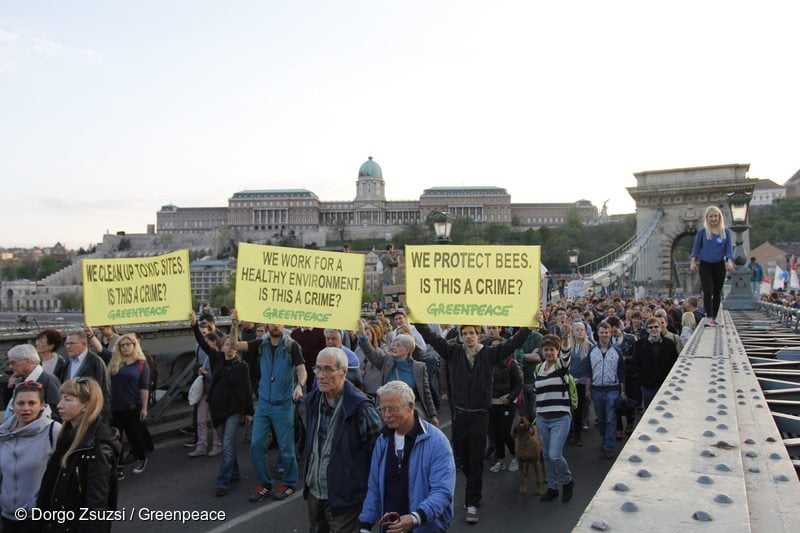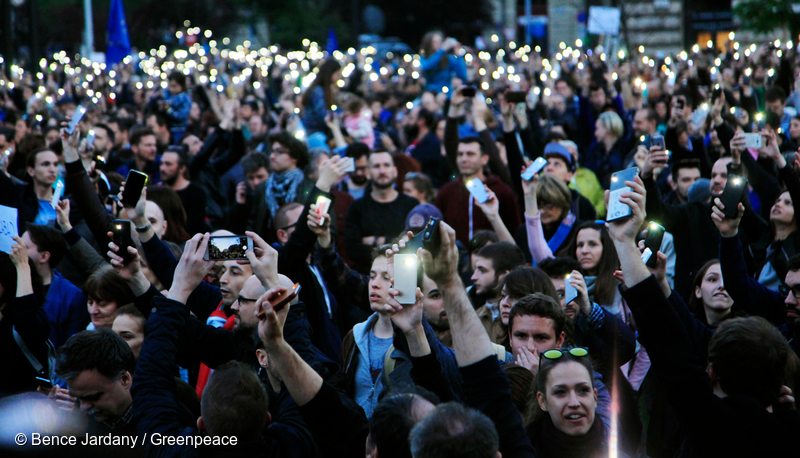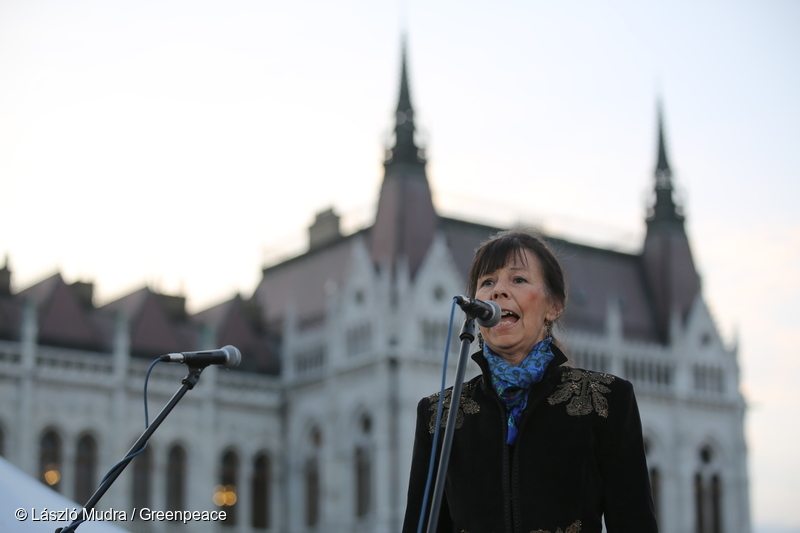A new law proposed in Hungary places civil society organizations — like Greenpeace — at risk. Forty-year activist veteran Katalin Rodics explains what that could mean for democracy, free speech, and the future of our planet.

In the winter of 2017, I received a call from a colleague about a small community in the Hungarian countryside, far from the busy streets of Budapest, that needed help. A Lutheran organisation had just launched a project with disabled adults, providing employment for a group of people who have very few opportunities in Hungary. We decided to join forces.
Together with Greenpeace Hungary, the group is now planning an accessible ecological garden in the grounds of the center, and starting to connect with the amazing network of organic farmers we’ve built across the country. Our supporters will help provide organic plants and materials needed to make the garden thrive. Soon there will be more than 100 people with disabilities working at the center, growing organic food, and spreading the word about sustainable agriculture all around the countryside.
This is the Hungary that I love and I am proud of — ambitious and inclusive.
I want all children to grow up in a society where they have the courage to take action and speak out for what they believe in. This is what I strive for. Every day, civil society organisations large and small work hard to make this country a safer, cleaner, more economically vibrant place.
But all this is in danger if the current government has its way.

A new law has been introduced in Hungarian Parliament that threatens to discredit, intimidate, and NGOs’ ability to speak up for our rights and the air, water, food, and nature we depend on. The law would label any group receiving a certain amount of funding from people outside of Hungary as a “foreign agent” and potentially link them to money launderers — or terrorists.
This attempt to stigmatize NGOs would come with additional and entirely unnecessary administrative burdens: Greenpeace is already fully transparent with our finances and their sources. But such a stigmatizing law could silence hundreds of credible organizations and mislead the hundreds of thousands of people we serve.

If you’re a Greenpeace supporter, you know that we’re not afraid to challenge governments and corporations when they endanger our air, water, and soil.
Speaking out on things that matter is a vital part of living in a free society. Standing up for the environment and for vulnerable people is a big part of what we bring to the communities we work with around the world, and a big reason that millions of people support our work financially. But the Hungarian government is signaling that it wants to weaken certain civil society organisations who work for the well-being of people and the planet.

Today, more than 70,000 people are gathered in front of Parliament to defend our right to speak and think freely, and to support our communities without fear, intimidation, or suspicion. Among us are mothers, fathers, sisters, brothers, students, teachers, activists — a diverse group from all walks of life.
As I’m invited on stage to speak, I feel humbled, and more determined than ever: we will never back down from defending our universities, our organizations, and our free society. Together we stand for a greener, more peaceful world. And around the world, we know that people like you are standing with us.
Katalin Rodics is an agriculture campaigner with Greenpeace Hungary. A mother of three and grandmother of five, she has worked more than 40 years for a clean healthy planet where all children can grow up safely.
